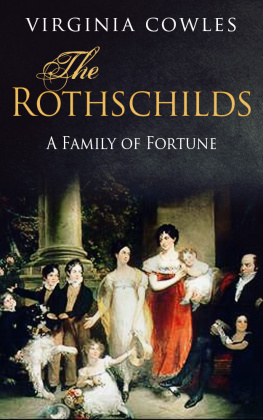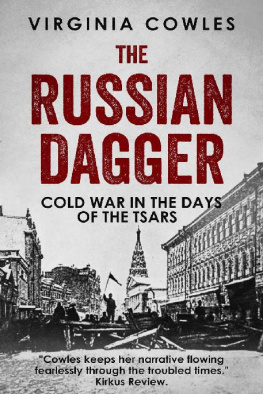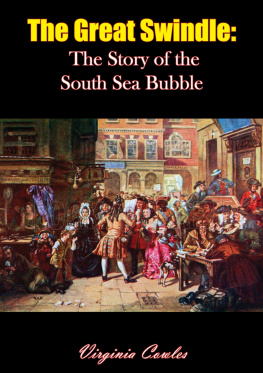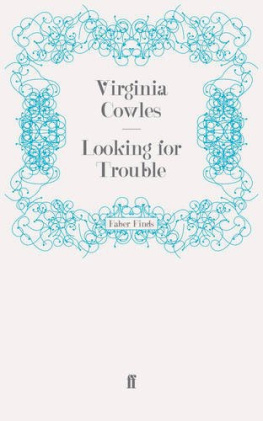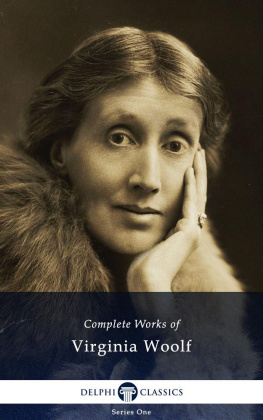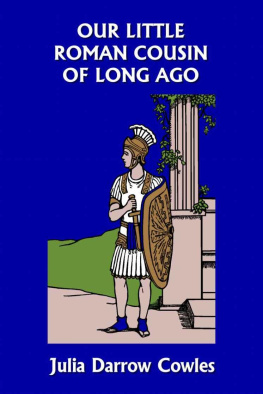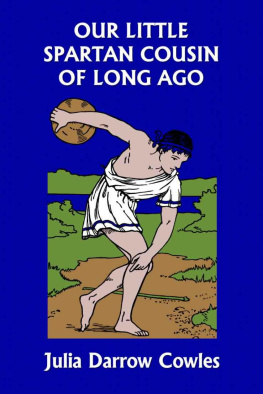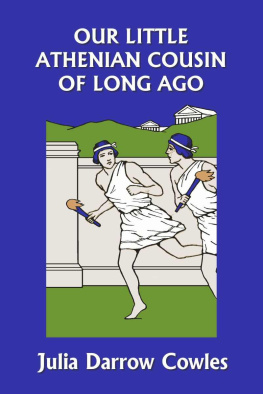Virginia Cowles - The Rothschilds
Here you can read online Virginia Cowles - The Rothschilds full text of the book (entire story) in english for free. Download pdf and epub, get meaning, cover and reviews about this ebook. year: 2015, publisher: Endeavour Press, genre: Detective and thriller. Description of the work, (preface) as well as reviews are available. Best literature library LitArk.com created for fans of good reading and offers a wide selection of genres:
Romance novel
Science fiction
Adventure
Detective
Science
History
Home and family
Prose
Art
Politics
Computer
Non-fiction
Religion
Business
Children
Humor
Choose a favorite category and find really read worthwhile books. Enjoy immersion in the world of imagination, feel the emotions of the characters or learn something new for yourself, make an fascinating discovery.
- Book:The Rothschilds
- Author:
- Publisher:Endeavour Press
- Genre:
- Year:2015
- Rating:3 / 5
- Favourites:Add to favourites
- Your mark:
- 60
- 1
- 2
- 3
- 4
- 5
The Rothschilds: summary, description and annotation
We offer to read an annotation, description, summary or preface (depends on what the author of the book "The Rothschilds" wrote himself). If you haven't found the necessary information about the book — write in the comments, we will try to find it.
The Rothschilds — read online for free the complete book (whole text) full work
Below is the text of the book, divided by pages. System saving the place of the last page read, allows you to conveniently read the book "The Rothschilds" online for free, without having to search again every time where you left off. Put a bookmark, and you can go to the page where you finished reading at any time.
Font size:
Interval:
Bookmark:
THE ROTHSCHILDS: A Family of Fortune
VIRGINIA COWLES
Copyright Virginia Cowles 1973
The right of Virginia Cowles to be identified as the author of this work has been asserted by him in accordance with the Copyright, Designs and Patents Act, 1988.
First published in 1973 by Weidenfeld & Nicolson.
This edition published in 2015 by Endeavour Press Ltd.
Dedicated to my dear children Andrew, Harriet and Randall who,
I feel sure, would have won the approbation of Mayer Amschel Rothschild for their devotion to one another when not locked in physical combat
Table of Contents
Acknowledgements
I would like to thank the many Rothschilds in England and France who helped me with information and pictures; and Lord Rosebery who gave me permission to publish the letter written by his father announcing his engagement to Hannah Rothschild.
I am also grateful to John Curtis and Jonathan Martin at Weidenfeld, for their interest and expertise, and to Mrs Enid Gordon who shepherded the book through its various stages and selected the pictures.
Lastly, my thanks to Mrs Joanna Birt who endlessly re-typed the manuscript.
CHAPTER I THE JEW AND THE PRINCE (1763-1806)
When the Seven Years War came to an end in 1763, two young men at opposite ends of the social scale, one a Prince, one a Jew, both twenty years old, returned to the great imperial city of Frankfurt on the Main. The Prince had never heard of his lowly contemporary: yet their paths were destined to cross and re-cross until the fame of the Jew and his sons had spread across Europe, eclipsing the importance of the Prince so completely that his name is remembered only as an incident in the rise of the Rothschild family.
Mayer Amschel Rothschild was a tall, spare man with piercing black eyes and a slightly quizzical smile. His inky beard was small and pointed and he wore a wig which, as a Jew, he was not allowed to powder. On his coat was sewn the yellow patch compulsory in Frankfurt for members of his race. When he crossed the bridge over the Main he had to pay Jew tax; and as he walked through the city streets more than one urchin jeered: Jew, do your duty. Almost automatically and with remarkable good temper he removed his hat each time and bowed.
There was no mistaking the ghetto. Although it was nothing more than a street twelve feet wide, wedged between the city walls and a trench, it differed from other streets by its dramatic entrance: a pair of heavy iron doors, closed on Sundays, and Feast days, and an arch over which was written: Under the Roman Emperors Majesty and the Holy Emperors Protection.
The 2,800 inmates of the ghetto had to pay high taxes for this fictitious protection. The custom had been instigated in the thirteenth century after a pogrom which had wiped out the two hundred Jewish inhabitants of Frankfurt, whose ancestors had lived in the city since the days of Charlemagne. Although in those times the Jews were not confined to a ghetto and enjoyed the same rights as the Christians, the current Emperor, Frederick II, had seized upon the idea of protection to raise extra revenue. But nothing stopped the periodic pogroms which always seemed to spring from a wave of utterly irrelevant hysteria. In 1349, when the Black Plague was raging, bands of Flagellants burst into Frankfurt accusing the Jews of poisoning the wells. When the citizens ignored these provocations the Brothers secretly set fire to several houses and ran through the streets crying Now the Jews are burning down your houses. This resulted in a general massacre.
Yet it was not for another hundred years, in 1442, that the Holy Roman Emperor bowed to pressure from the Church and ordered the Jews to remove themselves to a specified quarter of the city. The Judengasse, or Jews Alley, offered enough space for the 150 inhabitants but by 1760 nearly three thousand people were crammed into three hundred houses. The street was almost always deep in mud and garbage, and the stench unbearable. The heavily-bearded, Oriental figures in caftans and stove-pipe hats rooting through the stalls of second-hand junk alarmed young Goethe who grew up in Frankfurt. The limited area, the filth, the crowd, the accent of an unpleasant language, all combined to produce a most disagreeable impression, he wrote, even if one merely looked in as one passed the gates. Not only disagreeable but frightening for Gottfrieds Chronicle , read by German schoolboys, claimed that Jews spirited away Christian children and offered them as human sacrifices. Yet to Mayer Amschel Rothschild the jostling and the bargaining brought back nostalgic memories. He had grown up in the Judengasse with its welter of cheap merchandise, as had his father and grandfather before him. Despite the insistence of many writers, Jews were not denied the right of a surname; indeed, the fact that they clung to Oriental habit, referring to their male children as Sons of So and So, was a source of irritation and confusion to the authorities who eventually forced them to conform to Christian practice. Until this happened, however, many families identified themselves by nailing a picture or a sign over their front door. In 1585 records show that Mayers forebears had lived in a house with a red shield hence the name Rot-schildt.
But now home meant a small, damp dwelling known as the House of the Saucepan, which Mayer shared with his two brothers, Moses and Kalmann. The boys had lost their parents in a smallpox epidemic in 1755 when Mayer was eleven years old. The father had been a small trader, and as a child Mayer liked nothing better than to accompany him on journeys in the surrounding countryside, walking behind a donkey laden with samples. Although the man and the boy rarely covered more than ten or fifteen miles a day, they frequently passed through several principalities, for the Holy Roman Empire, the system under which Central Europe had lived for a thousand years, still encompassed most of Germany. As an institution it was almost moribund; indeed Voltaire inquired caustically in what sense it was either Holy or Roman or an Empire. Its elected Emperors, almost always chosen from the Habsburg family, were no more than honorary presidents of a loose confederation which, by the middle of the century, consisted of over three hundred independent states. Governed by absolute rulers ranging from imperial knights to sovereign abbots, from landgraves to dukes, from electors to princes and kings, almost all of them were feudal and military.
As each state had its own treasury, and each treasury minted its own coins, Mayer Amschel was taught the intricacies of money at a tender age. He not only learned to translate gold and silver into the copper coins in common use, but to calculate with lightning speed the exchange rate between thalers and ducats and florins and gulden. He became so proficient that when his father opened a money bureau in the ghetto he often left his youngest son to mind the shop. The many picturesque and obsolete coins that passed through Mayers hands awakened the collectors instinct; and before long the child had an array of rare specimens coming from such faraway places as the Palatinate and Russia and China.
When Mayer was ten he was sent by his parents to a yeshiva a Jewish religious school near Nuremberg to study to be a rabbi, a calling which several of his ancestors had adopted. The ghetto was famous for its scribes and scholars and no occupation commanded more respect than the pursuit of knowledge. Mayer was thought to have the application for such a life, but after a few months the boy became restless. The jingle of coins not only conjured up ancient lore but sang a song of freedom and power that was heady music to a ghetto boy.
Mayer remained at the school for eighteen months after his parents death but finally persuaded one of his mothers relations that he was not cut out to be a scholar. Although he was only thirteen in 1757, he was sent to live in Hanover with a cousin who got him a job as an apprentice in the famous Oppenheimer bank. Here life was far from dull as the Seven Years War was in progress and the city crowded with troops. The conflict had begun when Frederick the Great of Prussia had grabbed Silesia from Maria Theresa of Austria. The latter persuaded Russia, Sweden and France to support her and soon almost all the states of the Holy Roman Empire were drawn into the quarrel. Frederick aptly compared himself to a stag pursued by a pack of kings and princes. Although most of his battles took place in eastern Germany, one of his few military allies, Duke Ferdinand of Brunswick, with an army made up of Hessians and Hanoverians subsidized by Britain, fought the French in and out of Hanover, Frankfurt and Cassel.
Next pageFont size:
Interval:
Bookmark:
Similar books «The Rothschilds»
Look at similar books to The Rothschilds. We have selected literature similar in name and meaning in the hope of providing readers with more options to find new, interesting, not yet read works.
Discussion, reviews of the book The Rothschilds and just readers' own opinions. Leave your comments, write what you think about the work, its meaning or the main characters. Specify what exactly you liked and what you didn't like, and why you think so.

